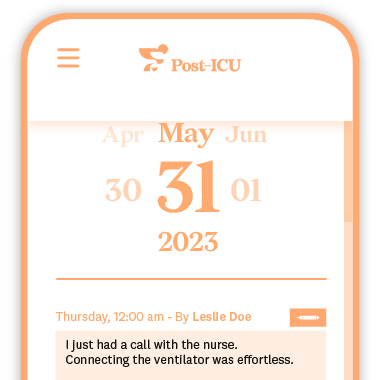Has your ICU become a cost center due to penalties, low reimbursements, réadmission, and low patient satisfaction?
Reimbursement models are increasingly tied to patient satisfaction and value-based care. Meanwhile, traditional billing codes often fail to capture the full complexity of ICU cases. This translates to lost revenue for your hospital. Here’s where ICU diaries come in. Let’s explore how an ICU diary can indirectly improve the financial health of your hospital.
Improved Patient Outcomes and Satisfaction
High patient satisfaction scores are increasingly linked to reimbursement rates under value-based care models. A significant portion – 30% – of Medicare reimbursements for hospitals now hinge on patient satisfaction, implemented in October 2012 by the Department of Health and Human Services.
This is why hospitals are looking for new, efficient ways to increase patient satisfaction, especially in the ICU where patients and their families are living through some of the most difficult times in their lives.
One such way is transitioning to digital and using technology in patient care. Journaling can enhance patient and family satisfaction by improving communication and engagement, potentially leading to better reimbursement rates.
Documenting Care Complexity for Higher Reimbursement
Standard billing codes often rely on a limited set of diagnoses and procedures. ICU diaries can capture the nuances of a patient’s condition and the complexity of care, including:
- Emotional and psychological distress
- Unpredictable and resource-intensive nature of ICU care by documenting very dynamic, rapid fluctuations in patient’s condition
- Unseen work performed by the critical care staff
By providing this richer picture, ICU diaries strengthen the case for higher reimbursement by demonstrating the true intensity and resource utilization required for the patient’s care.
If a hospital receives a lower-than-expected reimbursement for an ICU case, ICU diary entries can serve as valuable evidence during the appeal process. The detailed narrative can showcase the complexities not reflected in the initial billing codes, justifying the need for a higher reimbursement rate.
Reducing Readmissions and Associated Penalties
Effective communication and patient engagement, facilitated by journaling, can lead to better compliance with post-discharge instructions and follow-up care, potentially reducing readmission rates. Lower readmission rates are favorable for hospitals under reimbursement models that penalize readmissions.
Multiple cost savings can be attributed to the use of Post ICU digital diary:
- Reduced Readmissions: A significant financial threat exists due to penalties for excessive readmissions. In 2023, 60% of U.S. hospitals were at risk, and 75% of those eligible received a Medicare penalty averaging 0.43% of their total Medicare revenue. ICU diaries can mitigate these penalties by improving communication and follow-up care, potentially leading to fewer readmissions.
- Lower Out-of-Pocket Costs: Beyond penalties, traditional care can lead to additional unforeseen costs. For example, Post-Traumatic Stress Disorder (PTSD) treatment can range from $20,000 to $50,000 per patient. ICU diaries can potentially reduce such expenses by aiding in clearer communication, leading to better follow-up care and potentially fewer complications.
- Optimized Length of Stay: Another major cost factor is the issue of late discharges, which account for a staggering $31 billion annually in the US. ICU diaries can help streamline discharge planning by improving communication between ICU teams and case managers, as well as ensuring patients clearly understand discharge instructions. This can lead to faster recovery and earlier discharge, freeing up beds and resources for other patients.
Supporting Accreditation and Improved Payer Contracts
Data and insights derived from patient journals can be used in quality improvement initiatives. This focus on quality is precisely what accreditation bodies look for during evaluations. Strong performance in accreditation processes, based on data-driven quality improvements, leads to higher hospital standing. This strong reputation and accreditation translates to several benefits including improved payer contracts and higher reimbursement rates.
Enhancing Reputation and Marketability
By implementing patient-centered innovations like journaling, a hospital can improve its reputation for providing compassionate, high-quality care. This reputation can attract more patients and potentially more favorable negotiations with insurance companies, as payers are interested in associating with providers that demonstrate high patient satisfaction and quality of care.
Providing Data for Value-Based Care Negotiations
The qualitative data gathered from patient and family journals can serve as evidence of high-quality, patient-centered care, supporting a hospital’s position in negotiations with payers for value-based care agreements.
Discover how Griffin Hospital increased their ICU patient experience effectively with Post-ICU.
ICU Diaries: A tool to use to improve hospital financial health
While a patient journaling solution is more of a qualitative tool and its impacts on reimbursement are indirect, integrating patient experiences and satisfaction into the care process aligns with broader trends in healthcare towards value-based care. By improving patient outcomes, satisfaction, and engagement, hospitals can create a more favorable environment for securing better reimbursement rates and financial sustainability.
If you’re looking to achieve these goals and improve your hospital’s financial health, then explore the power of ICU diaries.





